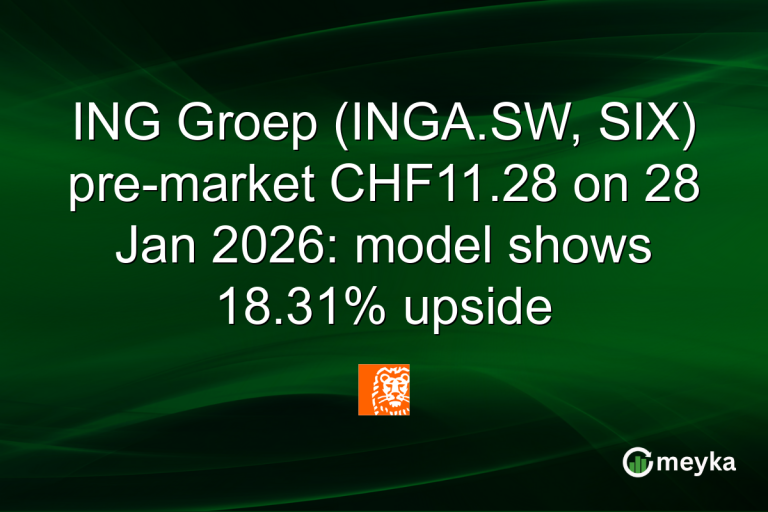Seibu Ikebukuro Store Buyout Triggers Market Frenzy
In a move shaking the Japanese retail landscape, Yodobashi Holdings has finalized its acquisition of the Seibu Ikebukuro store, a high-profile asset operated by Sogo & Seibu. This development has not only sparked a staggering 50% surge in related search queries but also ignited excitement across market circles. Investors are diving deep into the implications of this buyout, curious about how it might reshape the future strategies of the stock 8234.T and the broader Japanese department store sector.
The Landmark Acquisition by Yodobashi Holdings
Yodobashi Holdings’ purchase of the Seibu Ikebukuro store marks a significant shift in Japan’s retail sector. This landmark acquisition extends Yodobashi’s influence, cementing its position among Japan’s top retail giants. Previously, the Seibu Ikebukuro store was one of the crown jewels of Sogo & Seibu, enticing thousands daily with luxury and everyday items. Now under Yodobashi, this transition is poised to introduce new business strategies and customer experiences.
The motivation behind Yodobashi’s strategic buyout involves leveraging Seibu’s prime location and proven customer loyalty. Analysts suggest that integrating Yodobashi’s technology-driven approach with Seibu’s traditional retail strengths could revitalize the store’s appeal. The deal’s timing aligns with a broader trend in Japan, where digital and physical retail are increasingly interwoven. Bloomberg offers more insight into Yodobashi’s strategic plans in the post-acquisition phase.
Impact on the Japanese Department Store Market
The acquisition has cast a fresh light on Japan’s department store industry, often considered a stalwart of tradition. However, with changing consumer preferences and digital transformation, adaptability has become crucial. The buyout is expected to challenge competitors by blending Yodobashi’s innovative practices with Seibu’s heritage-centric offerings.
Broader market movements display mixed reactions. Some experts believe this could set a precedent, leading other corporate players to consider similar moves. Meanwhile, others pause, noting challenges in meshing differing retail philosophies. This acquisition reflects a growing trend of consolidation in Japan’s retail sector, where companies seek synergies to withstand domestic and global competition. Reuters covers the industry implications in depth.
Investor Reactions and Market Sentiment
The market’s response to the Seibu Ikebukuro store buyout has been immediate and robust. Following the announcement, 8234.T experienced a significant uptick in trading volume, reflecting investor optimism and curiosity about future growth trajectories. Positive sentiment stems from anticipated strategic synergies expected to translate into increased revenue streams and market share.
Social media buzzes with speculation about Yodobashi’s potential innovations and the revitalization of Seibu’s brand identity. Yahoo Finance comments on the stock’s recent performance and market analysts are closely watching any statements from Yodobashi regarding strategic alignments. This shows an interesting phase of transformation and adaptation in the retail space.
Future Strategies for 8234.T
As Yodobashi Holdings takes the helm, the focus shifts to potential strategies that could shape 8234.T’s future. Embracing technology-driven enhancements while maintaining its core retail traditions could lead to groundbreaking consumer engagement models. This dual approach is anticipated to enhance operational efficiencies and customer satisfaction.
Additionally, global expansion might be on the horizon as Yodobashi seeks to leverage Seibu’s internationally recognized brand. This aligns well with Japan’s broader economic strategy of promoting externally focused growth. Observers can look to Meyka for real-time insights into such financial developments as the situation evolves.
Final Thoughts
The Seibu Ikebukuro store’s acquisition by Yodobashi Holdings is more than a mere corporate reshuffle; it represents an evolving narrative in Japan’s retail sector. The transaction not only brings together two distinct business cultures but also embodies a shift towards innovative retail practices. For 8234.T, the acquisition promises potential gains through enhanced consumer reach and operational synergies.
Investors watching 8234.T can expect strategic transformations as the company seeks to balance modernization with its illustrious history. The coming months will reveal how effectively these changes can bolster the brand’s market position, both domestically and potentially globally. As the landscape continues to evolve amidst digital upheaval, platforms like Meyka will be valuable for investors seeking comprehensive analyses and forward-looking financial insights.
Embracing this change, investors should stay attuned to emerging trends, leveraging both historical strengths and new growth opportunities. As Yodobashi and 8234.T navigate this new chapter, they stand as a testament to resilience and adaptability in the global retail arena.
FAQs
Yodobashi aimed to capitalize on Seibu’s iconic status and customer base, integrating its tech-savvy approach with traditional retail to innovate and expand market reach.
The acquisition introduces new competitive dynamics, potentially prompting industry-wide shifts as others may follow suit to blend innovation with tradition.
Shareholders might benefit from strategic synergies and innovation-led growth, leading to potential revenue increases and market expansion for 8234.T.
Disclaimer:
This is for information only, not financial advice. Always do your research.






